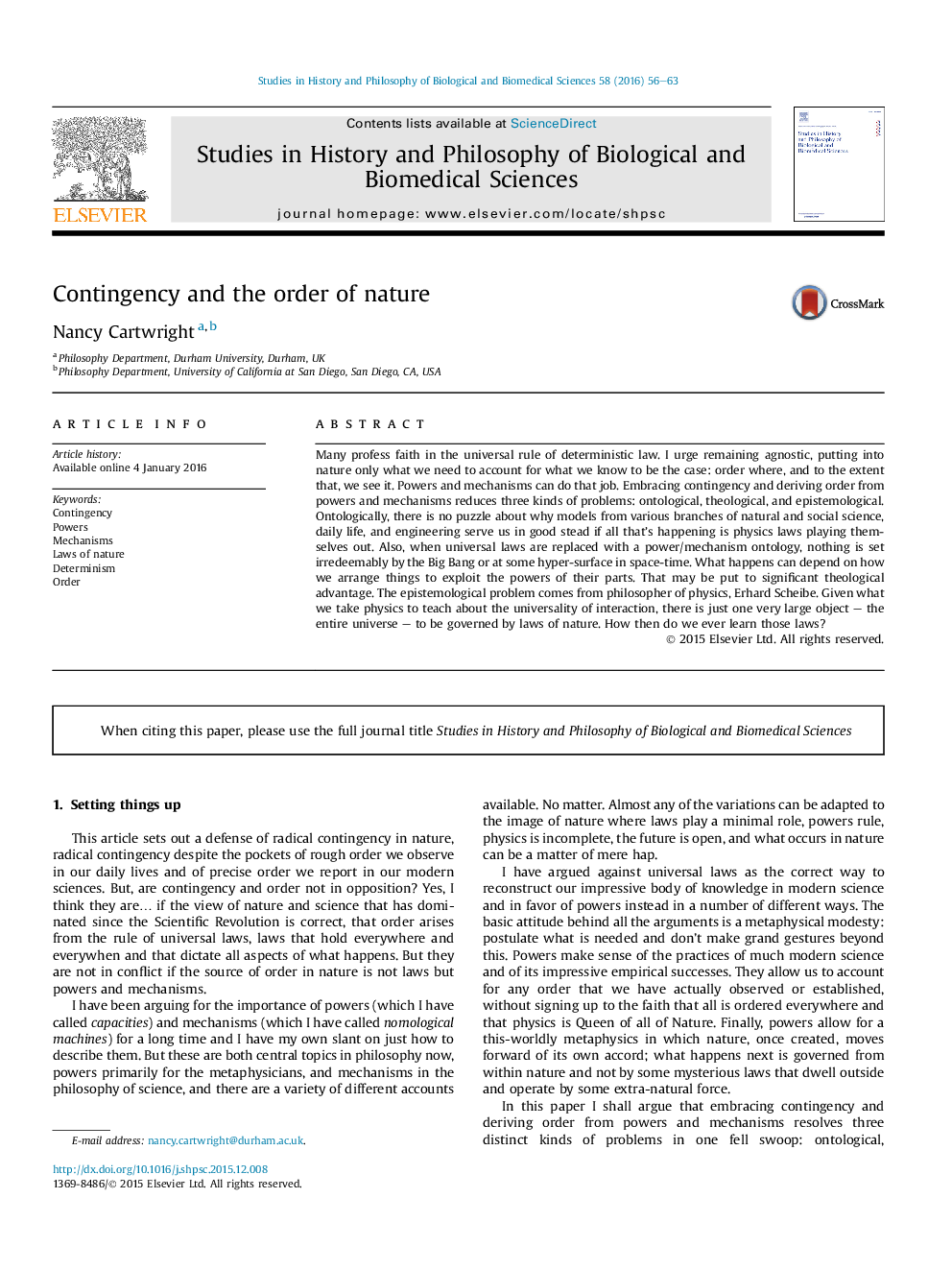| Article ID | Journal | Published Year | Pages | File Type |
|---|---|---|---|---|
| 1162143 | Studies in History and Philosophy of Science Part C: Studies in History and Philosophy of Biological and Biomedical Sciences | 2016 | 8 Pages |
•The order observed in nature does not require laws to explain it.•Order arises from powers, which allows for much contingency in nature.•Given powers, not all order comes from physics.•A powers ontology allows us to make things happen.
Many profess faith in the universal rule of deterministic law. I urge remaining agnostic, putting into nature only what we need to account for what we know to be the case: order where, and to the extent that, we see it. Powers and mechanisms can do that job. Embracing contingency and deriving order from powers and mechanisms reduces three kinds of problems: ontological, theological, and epistemological. Ontologically, there is no puzzle about why models from various branches of natural and social science, daily life, and engineering serve us in good stead if all that's happening is physics laws playing themselves out. Also, when universal laws are replaced with a power/mechanism ontology, nothing is set irredeemably by the Big Bang or at some hyper-surface in space-time. What happens can depend on how we arrange things to exploit the powers of their parts. That may be put to significant theological advantage. The epistemological problem comes from philosopher of physics, Erhard Scheibe. Given what we take physics to teach about the universality of interaction, there is just one very large object – the entire universe – to be governed by laws of nature. How then do we ever learn those laws?
